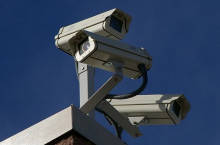South Korean data breach results in 220m records stolen
Personal details, relating to half of South Korea's population, have been stolen by hackers, including full names, account names, passwords and resident registration numbers.
The hack was revealed after 16 people were arrested for stealing data from a number of online game and movie ticket sites. They are said to have set up targeted attacks on registration pages of the sites to siphon off the personal details.












































































